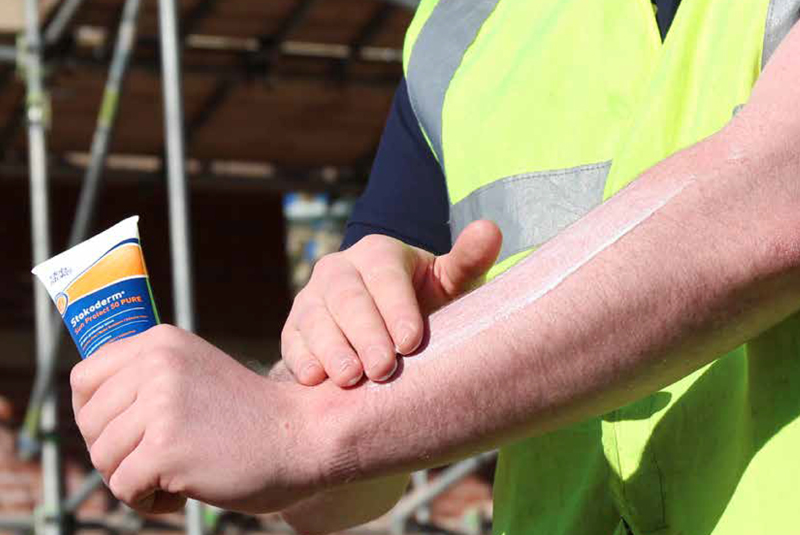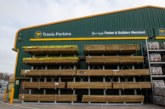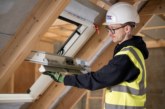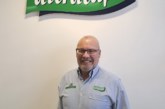
A new survey from SC Johnson Professional has revealed “a gap in training on UV protection for outdoor workers” which may be of interest to merchants in terms of both sales of skin care protection to their customers and also ensuring their own workers can be kept safe.
According to the Institution of Occupational Safety and Health’s No Time to Lose Campaign, skin cancer is the most common type of cancer in the world. and Britain sees 1,700 people diagnosed every year as a direct cause of occupational sun exposure.
Despite growing awareness of the risks of unprotected UV exposure, a study conducted by SC Johnson Professional found that 76% of UK health and safety professionals were unaware that one death and five new cases of skin cancer per week in Britain could be attributed to occupational UV exposure.
Building on studies carried out in 2017 and 2019 with outdoor workers, this year SC Johnson Professional surveyed health and safety officials at 144 UK companies. Among the key findings, one in three health and safety professionals stated that their organisation did not provide any UV protection to outdoor workers.
Lack of product provision may be due to the fact that 40% of these professionals claimed that employees provided their own UV protection. According to Health and Safety Executive (HSE) guidelines, UV radiation should be considered an occupational hazard for those who work outdoors. Despite this, in its 2019 survey SC Johnson Professional discovered that 87% of non-wearers of sun cream stated that there was no UV skin protection product made available in their workplace. Of those who did use sun cream, only 27% were provided with product by their employer.
Further to this, when asked why they felt that a large number of employees did not use UV skin protection, 45% of health and safety professionals admitted that this was due to a lack of awareness around the dangers of UV exposure. However, it was concerning that 30% of the respondents said that it was due to a general belief that UV protection at work in the UK is unnecessary.
Last year’s survey saw 136 outdoor workers participating; and it was found that only one in four wore protective sun cream whilst at work, citing the effort involved as the main reason. In contrast to this, 72% of respondents claimed that they would use protective sun cream whilst on holiday, but only 26% would wear sun cream on cloudy days despite the fact that over 90% of potentially harmful UV rays can pass through cloud cover; demonstrating an awareness of the risks on holiday, but a need for a shift in attitude when it came to protection at work.
Seeking to find out what was needed in terms of training, it was found that one in two organisations surveyed carried out no training on when and how to use UV protection, and just 37% of health and safety professionals stated that they themselves had had the correct training to equip them to implement UV protection programmes in their organisations.
Of those health and safety professionals where the majority of employees worked outdoors, on ein three said that they did not have enough information to brief workers on the dangers of UV exposure and 41% stated that they wanted clearer regulatory requirements to help them with this. 43% of professionals wanted better data and information on the risks posed by UV radiation in the UK.
UV training is recommended when it comes to raising awareness around the risks and advising on best practice. Toolbox Talks help health and safety professionals and site managers to deliver quality, informative training and videos can illustrate real-life case studies and simple facts to bring home the reality of over-exposure. Training should highlight the ‘5 S approach’ – slip, slop, slap, slide and shade – an approach which can significantly contribute to the prevention of excessive UV exposure.
Builders’ merchants can play a role in helping employers and employees protect themselves against UV over-exposure. Ensuring the supply of broad spectrum, high factor sun cream is important – but promoting the importance of UV protection can also help.
One way to raise awareness is highlighting the UV level, which is published by the Met Office here. This is a good indicator because when levels exceed 3, the sun is strong enough to cause skin damage. Displaying the daily forecast UV level for the local area in trade counters could be an effective way of helping outdoor workers know when to apply protection.
Find out more about SC Johnson Professional’s products or download training material here: https://www.debgroup.com/uk/UV
In February 2020 skin care experts SC Johnson Professional surveyed health and safety professionals on UV practice and protection in their workplace, building on worker research conducted over the previous two years. Striving to deliver enhanced training and end user support, as well as looking to raising awareness of this important issue, SC Johnson Professional’s research aimed to learn more about general UV awareness in industry, what protection was provided to employees, if and how training was implemented and what health and safety professionals were looking for in terms of best practice guidance.









